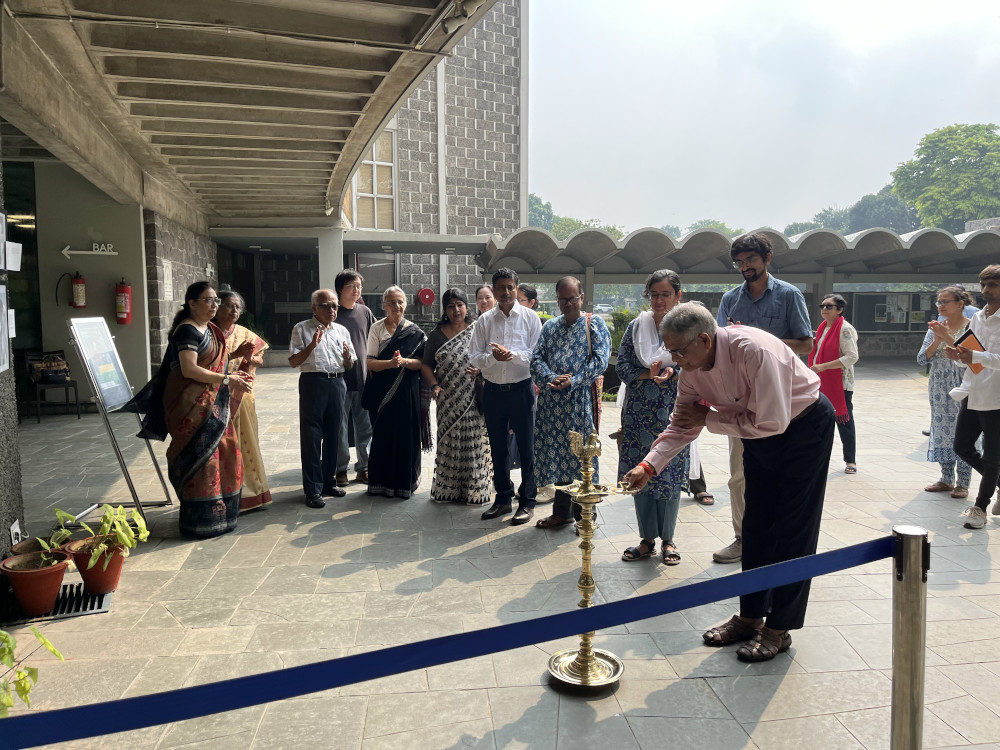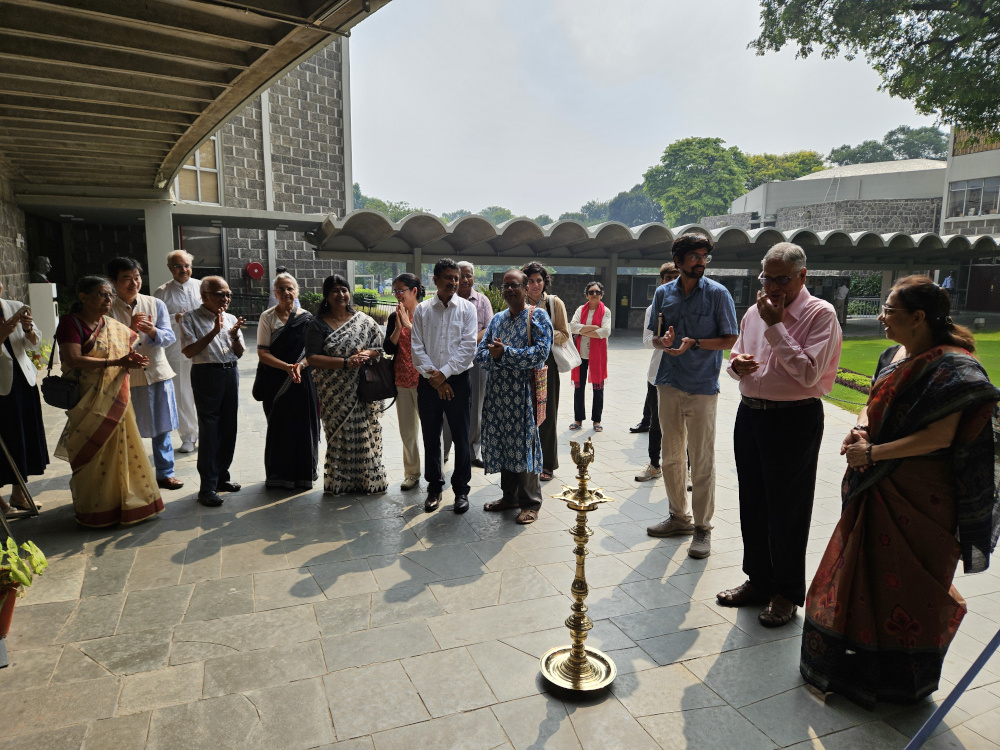Events > Conferences > Centenary Celebration of Tagore's Visit to China

CENTENARY CELEBRATION OF RABINDRANATH TAGORE’S VISIT TO CHINA
“A Memorable Encounter: Significance for Civilizational Dialogue in the Contemporary World”
September 24, 2024
Venue: India International Centre
The Institute of Chinese Studies (ICS), in collaboration with India International Centre (IIC), Cheena Bhavana, Visva-Bharati University, Intercivilizational Dialogue Project (IDP), Gandhi Global Family (GGF) and Centre for Chinese & South East Asian Studies, SLL&CS, Jawaharlal Nehru University, is organising a one-day event, "A Memorable Encounter: Significance for Civilizational Dialogue in the Contemporary World" on 24 September 2024 in India International Centre, 40, Max Mueller Marg, Lodhi Gardens, Lodhi Estate, New Delhi 110003.
The event aims to commemorate the 100th anniversary of Rabindranath Tagore's visit to China, which holds significant cultural and historical importance. The event seeks to highlight the deep cultural ties and mutual influence between India and China, foster greater understanding and dialogue between the two peoples, and explore the lasting impact of Tagore's philosophy and work on Chinese intellectuals and society. The overall aim is to celebrate the legacy of Tagore's visit and its role in shaping cultural diplomacy and intellectual collaboration between India and China.
Concept Note
This year is the 100th anniversary of Rabindranath Tagore’s visit to China in 1924. This visit is of great historical significance and is a landmark in India-China relations. Tagore reached China on April 12, 1924 on the invitation of the Beijing Lecture Association and was received warmly by Liang Qichao, one of China’s foremost intellectuals of the time, as well as his young hosts and interpreters, Lin Huiyin and Xu Zhimo.
Tagore’s works and his visit had a big impact on modern Chinese literature. Poets like Bing Xin and Xu Zhimo were very much influenced by his style. Tagore’s works played a major role in shaping the life and thought of Guo Moruo at one stage. Parallel to this literary exchange was an artistic exchange. Tagore was accompanied by the artist Nandalal Bose who incorporated Chinese styles in his works. One of China’s foremost modern artists, Xu Beihong visited Santiniketan and stayed in India for about a year. To this date Tagore remains an extremely popular figure in China.
We live in times of a changing world order where the domination of the international order by the West is under decline and a multipolar world is emerging leading to a global process of democratic restructuring of power relations at all levels. That was a vision that Tagore and his contemporaries in India and China wished their people to pursue jointly in their struggle for freedom. India and China are poised to become the two largest economies by 2050 and there is also a global recognition of the phenomenon of the rise of Asia. The relationship between India and China will be important, not just for their own people, but for the future of humanity as such. Tagore was persistent in building cultural links among Asian nations throughout his life and Visva-Bharati University is a monument of that enterprise.
During the past several decades India and China have gone through phases of mutual understanding as well as periods of tension and conflict. After a phase of evolving normalisation and exchanges the two countries are again facing a period of tense relations. As a result, at present both countries have more contact with the West than they have with each other. It is therefore essential that India and China continue to open channels of exchange unmediated by the West. Both countries are engaged in building modern nations on the foundations of their great civilisations to fulfil the aspirations of their people; they have many common challenges and have similar perspectives on many global issues. At this historical juncture, the Tagore legacy inspires people of both countries to start a new phase of exchanges and dialogues. Tagore believed that the basis for friendship between India and China would not be the intellectuals alone, but would involve the ordinary men and women of the two countries. Tagore’s ideas continue to be of great relevance and the centenary of his visit gives us the opportunity to revisit his thought. It is hoped that the people of India and China will contribute towards ushering in a new era based on principles of peace, justice and equity, and join hands in celebrating the beauty of nature.
Programme
Registration: 9:30 A.M. -10:30 A.M.
Inauguration: 24 September 2024, 10 A.M.
Venue: Quadrangle Garden, India International Centre, 40 Max Mueller Marg, Lodhi Gardens, Lodhi Estate, New Delhi -110003.
The exhibition will feature photographs of Tagore’s visit to China, subsequent cultural and artistic connections between the two countries, Tan Yun Shan and Cheena Bhavan.
Time: 10:30 A.M. - 05:00 P.M.
Venue: Conference Room II, Terrace Pergola, India International Centre, 40 Max Mueller Marg, Lodhi Gardens, Lodhi Estate, New Delhi- 110003.
The conference will feature eminent scholars from India and China who will discuss the significance of Tagore’s visit to China, cultural interactions and civilizational connections between India and China and the possibility of peace and cooperation in future.
Time: 6:30 P.M - 8:00 P.M.
Venue: C.D. Deshmukh Auditorium, India International Centre, 40 Max Mueller Marg, Lodhi Gardens, Lodhi Estate, New Delhi - 110003
A Cultural Programme, comprising Tagore Songs (Rabindra Sangeet), Dance and Recitation in English, Bengali and Chinese, as well as a play based on Tagore’s short story Postmaster, will be presented by students of CCSEAS, SLL&CS, JNU and Cheena-Bhavana, Visva-Bharati, Santiniketan.
Please find below the concept note of the event; the program will be uploaded shortly.
Convener
Professor Sabaree Mitra
Professor
Centre for Chinese and South East Asian Studies
School of Language, Literature and Culture Studies
Jawaharlal Nehru University (JNU), Delhi - 110067
Honorary Fellow
Institute of Chinese Studies
B-371 Chittaranjan Park
Delhi - 110019
Co-Convener
Professor Avijit Banerjee
Professor & Head of Department
Department of Chinese Language & Culture
Cheena Bhavana
Visva- Bharati University
Santiniketan
West Bengal - 731235
Adjunct Fellow
Institute of Chinese Studies
B-371 Chittaranjan Park
Delhi - 110019
CONCEPT NOTE | PROGRAMME | REPORT




© 2019 ICS All rights reserved.
Powered by Matrix Nodes